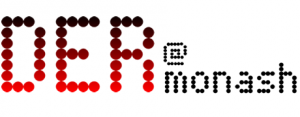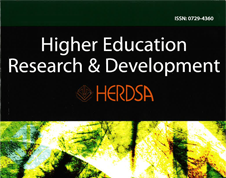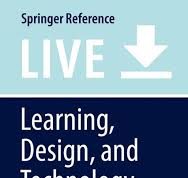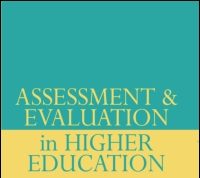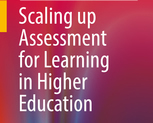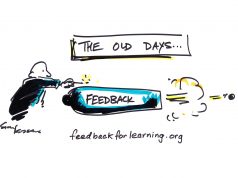Author:
Phillip Dawson
 failure, noun: “The fact of failing to effect one’s purpose” (Oxford English Dictionary, failure, n. 3a)
failure, noun: “The fact of failing to effect one’s purpose” (Oxford English Dictionary, failure, n. 3a)
Have MOOCs failed us? This depends on their purpose. If their purpose was broadening access to chunks of higher education, they’re a success: Coursera alone has more than four times as many students as the entire Australian higher education system.
 They seem pretty good at making headlines and extracting venture capital too. But has their goal of equity or equality in higher education been reached?
They seem pretty good at making headlines and extracting venture capital too. But has their goal of equity or equality in higher education been reached?
Providing higher education to all is more complicated than just enrolling everyone. Access to higher education and successfully progressing through it are not the same thing. The current scorecard has 90% of students in Australian universities sticking with their studies, and ~90% of MOOC students dropping out.
I’ve argued elsewhere that MOOCs are like exercise bikes: you start with the best of intentions, but most of the time exercise bikes end up under the bed, and MOOCs end up incomplete.
Yes, elite athletes may use exercise bikes to great effect in the off-season; and many academics and professionals have taste-tested MOOCs and even completed them. There are even a few beginners who have fought obesity with an exercise bike or finished a MOOC. Some MOOC completers have even been first-time students from developing nations, and one was dux of their course.
But what about the well-intentioned person who starts with the exercise bike or MOOC and never achieves their goal? Does this experience, arguably, one of failure, change how they think of themselves? Does this change how they might pursue these goals in the future?
It’s tempting to think that if one student from a non-traditional background can complete a MOOC, then anyone can, and MOOCs must therefore herald free higher education for all. But we wouldn’t accept this form of argument elsewhere. A few exercise fanatics getting fit at home does not herald the end of the gym. Barrack Obama being president does not demonstrate that racism is over. One painting selling for millions of dollars does not itself make a thriving arts scene for newcomers, even if we give them free paint. The successes of a few exceptional individuals do not remove the challenges their peers face.
The problem of getting more people from a broader cross-section of society to complete higher education courses (not just start them) has occupied researchers and practitioners for decades (for a history in the US context see Arendale, 2002). This is well-researched territory that MOOCs are entering. Entire journals are dedicated to the topic (see for example the Journal of College Student Retention). Vincent Tinto’s 1975 article Dropout from higher education: A theoretical synthesis of recent research and 1987 book Leaving college: Rethinking the causes and cures of student attrition have been cited a total of ten thousand times. Student success in higher education is the site of substantial research.
As an example, we have strong evidence that academic skills and self-management play a strong role in university retention, and that certain sorts of interventions can increase them. If you haven’t been in an academic environment where you can develop these skills then higher education will be more challenging. Conversely, if you’re an academic with a PhD then you likely have developed the academic skills and self-management necessary to succeed in higher education; your experiences studying a MOOC will be different to those of first-time students. An academic receiving a statement of attainment from a Coursera MOOC is largely irrelevant to the ‘free higher education for all’ debate.
Contrasting MOOCs with our best efforts in traditional higher education we see a ‘sink or swim’ attitude versus the provision of flotation devices. Students in traditional online/f2f degrees variously have access to a range of support services to help them stay the course. Universities sometimes even design curricula and pedagogy specifically to support non-traditional students. Resourcing these sorts of programs scales roughly linearly with the number of students enrolled, which is not very compatible with the MOOC funding model.
So, have MOOCs failed? That depends on what their purpose is: broadening access to higher education, or real higher education opportunity for all. One does not necessarily imply the other. In higher education, access without support is not opportunity.
About the author
Dr Phillip Dawson is a research Fellow of the LNM group and a Lecturer in Learning and Teaching, Office of the Pro Vice-Chancellor (Learning and Teaching) at Monash University. His profile can be found here.
